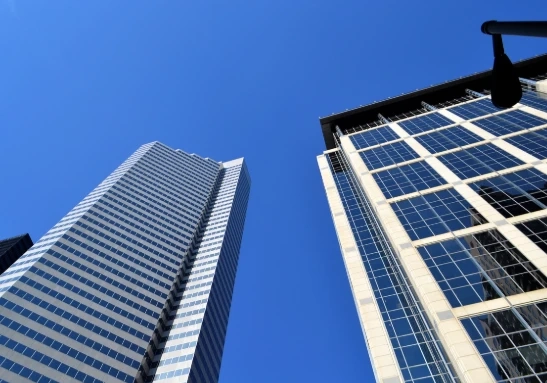Interest rates are a central element of the commercial property landscape. As an experienced investor or one stepping into the market, it is important to comprehend how interest rate fluctuations affect commercial property finance, valuation, and returns in making well-versed choices.

From funding property development to sustaining long-term investments, each step is susceptible to monetary policy variation.
The Borrowing Cost and How It Affects
Beneath each commercial property finance opportunity is the cost of borrowing. In low-interest-rate times, money is less expensive to borrow, which makes investors borrow for development or purchase. Such times typically indicate high demand for commercial property, driving up prices and motivating new development.
Conversely, when interest rates rise, the cost of capital also rises. Investors pay a higher rate of interest, diminishing their rate of return on investment. Increased rates have an adverse effect on investors' demand, slowing down the process of financing property development and investment.
Effects on Property Prices
Interest rates also influence commercial property values. Properties are more valuable at low rates with cheap financing and firmer demand. The high values cause competitive bidding for prime properties. With increasing interest rates, this can be reversed with decreasing values as buyers adjust their expectations.
Discount models, like the discounted cash flow method, use discount rates to calculate present value. As interest rates increase, the discount rate increases, and this lessens the present value of the property. This fits perfectly with what an investor perceives as return and can result in renegotiation or delayed buying.
Cash Flow and Returns on Investment
Higher borrowing cost generates higher monthly payments, which can squeeze out net operating income (NOI) if rental income is unable to increase proportionally. This renders it increasingly difficult to be profitable where rental increases are automatic and leases are long.
Also, investors doing business using leveraged methods may experience reduced margins since the cost of interest devours their profits. This is exactly why sound monetary management and stress testing should be done in connection with funding property development deals amidst rate volatility.
Financing and Development Activity
Interest rates are most pivotal to commercial property finance development and investment, most importantly because interest rates will decide whether the developer, or the ultimate buyer, can be provided with credit. At low-rate conditions, developers have greater chances of finance for new developments, whereas end-users will find financing more attractive. It encourages market activity and the supply of new products.
Yet as interest rates rise, most projects become financially unviable. Contractors delay or cancel projects because of more stringent credit terms or decreased anticipated revenue. The whole chain from lenders to builders to tenants suffers from this contraction.
Conclusion
Interest rates are the key factors in the success of any commercial property finance development and investment company. Whether financing property development or running an investment portfolio, it's essential to know about rate trends.
For expert advice and creative sources of funds that make sense to the realities of South African property markets, TUHF Group has a tested method for assisting entrepreneurs and developers.



